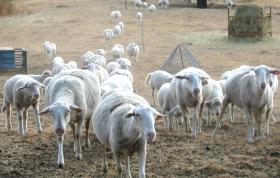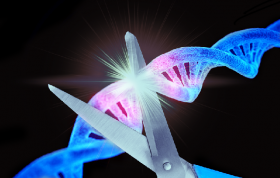An engaged institute
Our strategies, our principles
INRAE has two major missions: 1) generating and disseminating knowledge to tackle societal challenges related to food, agriculture, and the environment and 2) transforming this knowledge into innovations, expertise, and support for public policies. To be successful, the institute must employ its rigorous scientific approach to serve the greater good and reflect on the ethical implications of its research.
INRAE also pays close attention to how its work affects society and the environment. It fully espouses the principles of corporate social responsibility (CSR) and is changing its operations and professional practices with a view to promoting the UN 2030 Agenda for Sustainable Development.
INRAE as a whole is committed to CSR
These values unite INRAE personnel as they strive to serve:
- the greater good, including current and future societal expectations
- socioeconomic stakeholders concerned with agriculture, food, and the environment
- the informational needs of policymakers
To bring about positive change, INRAE is committed to quantifying and analysing the societal and environmental impacts of its work. These strategic efforts are led by the institute’s CSR office and complement INRAE’s research on sustainable development challenges.
Promoting scientific integrity, ethical practices, and proper professional conduct—the pillars of responsible research
Ethics, scientific integrity, and proper professional conduct are at the heart of INRAE’s policies and actions. The institute has established a delegation composed of experts in these three areas. They work directly with the CEO, and their actions are overseen by the committee for scientific integrity and conduct. Further guidance comes from institutional texts such as our Ethics, Scientific Integrity, and Code of Conduct Charter as well as our Scientific Integrity Policy.
The opinions issued by the INRAE-CIRAD-IFREMER-IRD Ethics in Common Committee inform INRAE's governing bodies and researchers on ethical issues related to food, agriculture, marine resources, the environment, sustainable development, and in particular the relationship between science and society.
In a world which is becoming increasingly digital and where the question of data is taking up an ever greater place, the General Data Protection Regulation (GDPR) constitutes a protective space in which it is possible to carry out our daily professional activites while preserving privacy as best we can. INRAE offers a range of support on these major issues by helping staff and teams better understand them and by guiding them in their application.
Guiding principles and official opinions
Our research topics and practices often tackle issues at the centre of societal debates and, as a consequence, our findings can help inform these crucial discussions. In certain cases and with the help of the above experts, INRAE has formulated concrete principles, adopted a specific stance, implemented an institutional strategy, or expressed an official opinion. Two examples are discussed below.
Role of animals in INRAE research
-
 Using animals in scientific studies remains a necessary part of research aimed at improving animal and human health. Animal models are also an essential part of basic research, agronomic research, and work seeking to preserve individual species and the broader environment. However, it is necessary to adopt an ethical approach and eschew the use of animals when possible. INRAE’S GUIDING PRINCIPLES FOR ANIMAL RESEARCH (IN FRENCH)
Using animals in scientific studies remains a necessary part of research aimed at improving animal and human health. Animal models are also an essential part of basic research, agronomic research, and work seeking to preserve individual species and the broader environment. However, it is necessary to adopt an ethical approach and eschew the use of animals when possible. INRAE’S GUIDING PRINCIPLES FOR ANIMAL RESEARCH (IN FRENCH)
- Boosting farm animal welfare: a key objective Research on farm animal welfare requires studying farm animal behaviour, in addition to looking at farming systems, their upstream and downstream supply chains, and even consumer behaviour. SPECIAL REPORT (IN FRENCH)
- Should we limit meat consumption? Many people are changing their meat consumption habits given current concerns about health, animal welfare, and, more generally, the poor sustainability of Western lifestyles. INRAE issued a scientific opinion regarding the positive and negative impacts of meat consumption that is filled with figures and illustrations to clarify the key issues at hand. SCIENTIFIC OPINION ON MEAT CONSUMPTION (IN FRENCH)
Genome-editing techniques
- Plant genomes
 Genome-editing technologies are essential tools for genetically improving plant species. INRAE transparently discusses its approach to using this technology, which is essential to the institute’s strategic priorities and desire to promote environmental, social, and economic progress.
Genome-editing technologies are essential tools for genetically improving plant species. INRAE transparently discusses its approach to using this technology, which is essential to the institute’s strategic priorities and desire to promote environmental, social, and economic progress. - Animal genomes
INRAE produces knowledge that boosts the development of cost-effective agricultural and food systems that are based on agroecological principles. Its research is also helping the world adapt to environmental changes and implement a global approach to health. It is against this backdrop that the institute has refined its scientific approach to applying genome-editing technology in animals.



